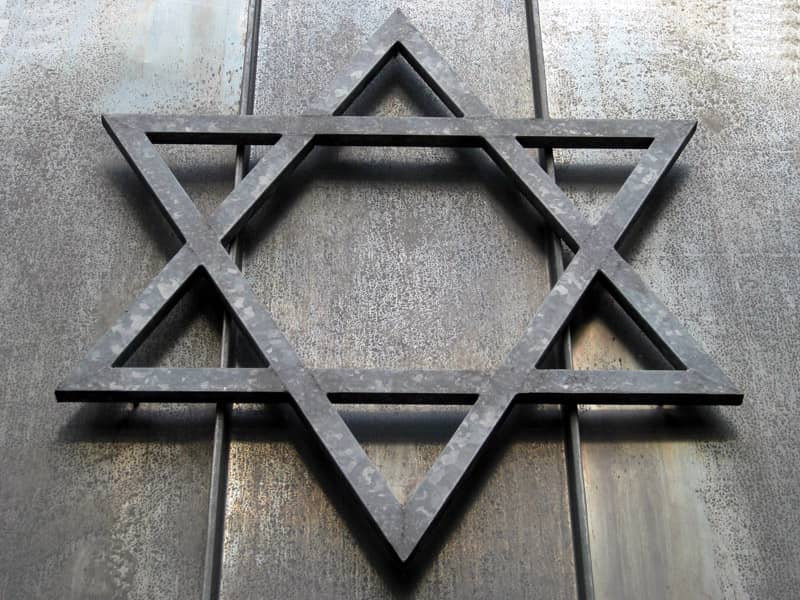American Jews have rarely been more united, and more effective, than we were in the Soviet Jewry movement. From the late 1960s until the collapse of the Soviet Union, virtually every synagogue, lay organization, Jewish community leader, and Jewish public official was involved somehow in the great cause of fighting Soviet anti-Semitism and gaining Soviet Jews permission to leave that country.
When the USSR collapsed, it seemed the great cause had been won. Many Soviet Jews left for Israel, many came here to the United States, and others left for various parts of Europe. Within the former USSR, anti-Semitism did not seem to be a pressing problem.
Today all that is changing, and once again American Jews must turn our attention back to Russia, where perhaps 700,000 Jews still live. The event that has most recently been a wake-up call is the jailing of media magnate Vladimir Gusinsky, who owns Russia's most influential independent television station and is also the head of its major Jewish organization, the Russian Jewish Congress. The Gusinsky arrest shows where Russia may be heading under its new president, Vladimir Putin: back toward dictatorship, censorship, and arbitrary arrest. And one of the most powerful forces in the "new" Russia seems to be a form of nationalism that, as so often in Russian history, excludes Jews.
As The New York Times reported in March 1999, "Russia's Jews are now facing a collapsing economy as well as the fresh burst of anti-Semitic statements. For the first time in nearly a decade, emigration from Russia to Israel is starting to climb.... While many Jews want to remain in Russia, there is a growing realization that they will have to fight the old battles against anti-Semitism all over again."
Some prominent politicians have publicly made anti-Semitic statements, and there have been violent incidents, such as last year's stabbing of Leopold Kaimovsky, executive director of the Jewish Arts Center at the Moscow Choral Synagogue. Gusinsky himself referred last summer to "anti-Semitic hysteria provoked by a series of provocative statements publicly made by several prominent Communist leaders and their allies from left-wing and Nazi extremist organizations."
While Boris Yeltsin's government frequently criticized such statements and anti-Semitism in general, it rarely reacted speedily. As the year-end statement of the National Conference on Soviet Jewry (yes, they've kept the old name) reported, "The initial want of Russian official response, either by word or deed, was almost as alarming as the increased tempo of rhetoric and attacks during the past two years. Every statement or attack that goes unanswered only serves to encourage those seeking to polarize and terrorize Russian society."
It remains to be seen whether the new Putin government will take serious action against anti-Semitism. There is surely no comfort to be taken from Russia's bloody war in Chechnya, where anti-Muslim stereotypes and sheer prejudice against Muslims have been used to fuel public support for the war effort. Nor is there any comfort in the rise of Russian nationalism. Nationalism is back in Russia, a result of the country's precipitous fall in world-power status and its precarious economic situation. Scapegoats are very convenient for the new government, and as has so often been true in Russian history, a key element of Russian nationalism is suspicion of those who are not Russian Orthodox in religion.
Moreover, there is no comfort whatsoever to be taken from these early days of Putin's rule. As William Safire has written, "After a decade of blessed free speech in Russia, repressive days are here again." Why was Gusinsky arrested? Safire wrote in June that Gusinsky, the head of the Media-Most media empire, was jailed because "his channel's newscasters do not hew to the Kremlin line and his satiric puppet show aims barbs at the new strongman and the Kremlin palace guard. Best of all for Putin's persecution purposes, Gusinsky is a Jew; unlike Berezovsky and some partners in Oligarchy Inc., he is not the self-hating, religion-denying kind. Anti-Semites applauded the K.G.B. raid on Media-Most's offices to grab files and cheered last week when the stiff-necked Jew was arrested and thrown in jail."
So there is much to fear in this witches' brew of repression, nationalism, and anti- Semitism, an old Russian recipe from which Jews have suffered for centuries. The Soviet Jewry movement is over, but a movement to protect Russian Jewry may be needed in the year 2000, just as it was in 1900. Some things, alas, never change.

